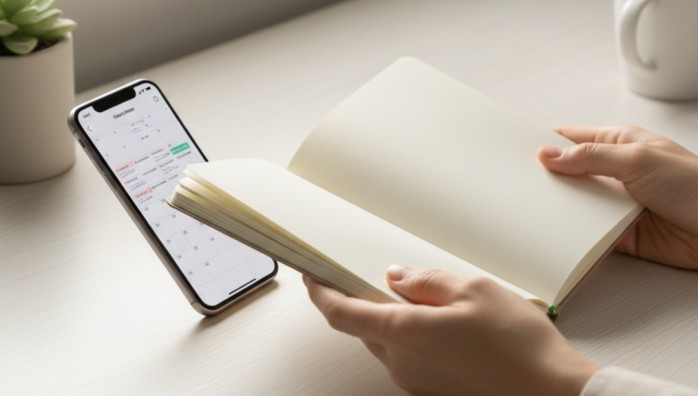Why I Ditched My Digital Calendar for a Simple Notebook
by admin in Productivity & Tools 103 - Last Update November 25, 2025

I used to live and die by my digital calendar. Every 15-minute block was color-coded, every task had a reminder, and my life was a perfectly synced, multi-device masterpiece of productivity. Or so I thought. In reality, I was drowning in notifications, constantly reacting to pings and alerts, and feeling more like a servant to my schedule than its master. The very tool meant to give me control had taken it away.
The breaking point was surprisingly quiet
It wasn\'t a missed critical meeting or a catastrophic scheduling error. It was a simple Sunday afternoon. An alert popped up: \"Prepare for Monday review.\" My shoulders tensed instantly. My weekend peace was shattered by a digital tap on the shoulder. I realized I hadn\'t had a single thought all day that wasn\'t prompted by an app. That was it. I turned off all calendar notifications and, on a whim, grabbed a dusty, empty notebook from my shelf.
My ridiculously simple analog setup
I didn\'t buy a fancy planner or research complex methodologies. My system had to be the opposite of the digital beast I was trying to escape. After a few weeks of trial and error, I landed on a process that has stuck with me for over a year.
The daily page
Each morning, I take a fresh page and draw a line down the middle. That\'s it.
- On the left side: I write the date and my 3 \'must-do\' tasks for the day. Only three. This forces me to prioritize what truly matters.
- On the right side: This is a running list for everything else that pops into my head—ideas, smaller tasks, things to look up later. It\'s a capture zone that keeps my \'must-do\' list sacred.
What I learned to leave out
The biggest change was separating appointments from tasks. Firm, time-based appointments (like a doctor\'s visit or a team meeting) still live in a barebones digital calendar, shared with others when necessary, but with zero notifications. The notebook is exclusively for my tasks—the things I need to *do*. This separation brought incredible clarity.
The unexpected benefits that completely hooked me
Honestly, I thought this experiment would last a week. But the psychological shift was profound. The physical act of writing my tasks down made them feel more real and manageable. Crossing them off with a pen provided a hit of satisfaction no digital checkbox ever could. I stopped over-scheduling my days because I could physically see the limited space on the page. My focus improved, my anxiety dropped, and for the first time in years, I felt I was intentionally directing my day instead of just reacting to it.
So, is an analog system for everyone?
Probably not. If your job is entirely about managing complex, collaborative schedules, a purely analog system might be impractical. But I often wonder how many of us have adopted complex digital systems simply because they\'re available, not because we truly need them. For me, this simple notebook isn\'t a step backward; it\'s a deliberate step toward a more focused and intentional way of working. It gave me back my attention, and that\'s a trade I\'d make any day.














